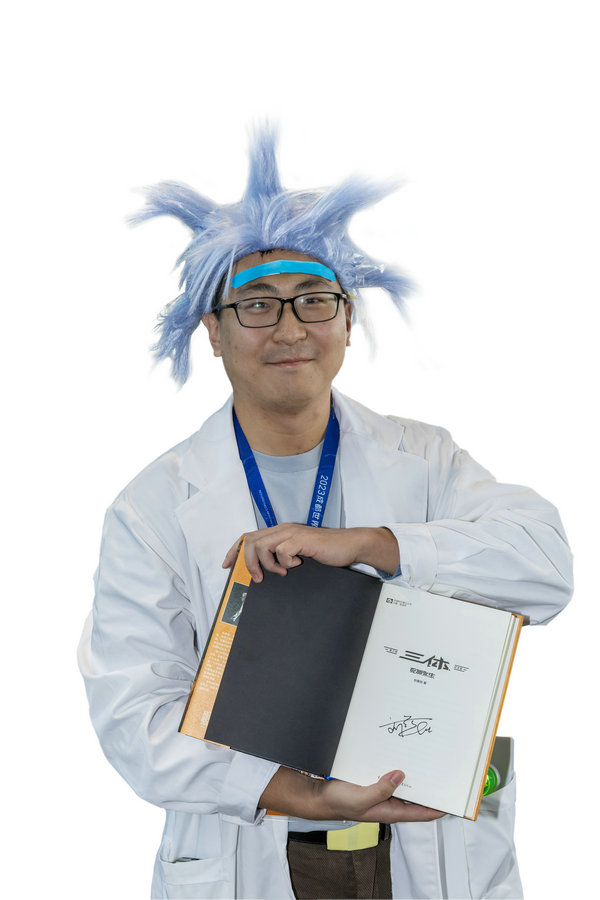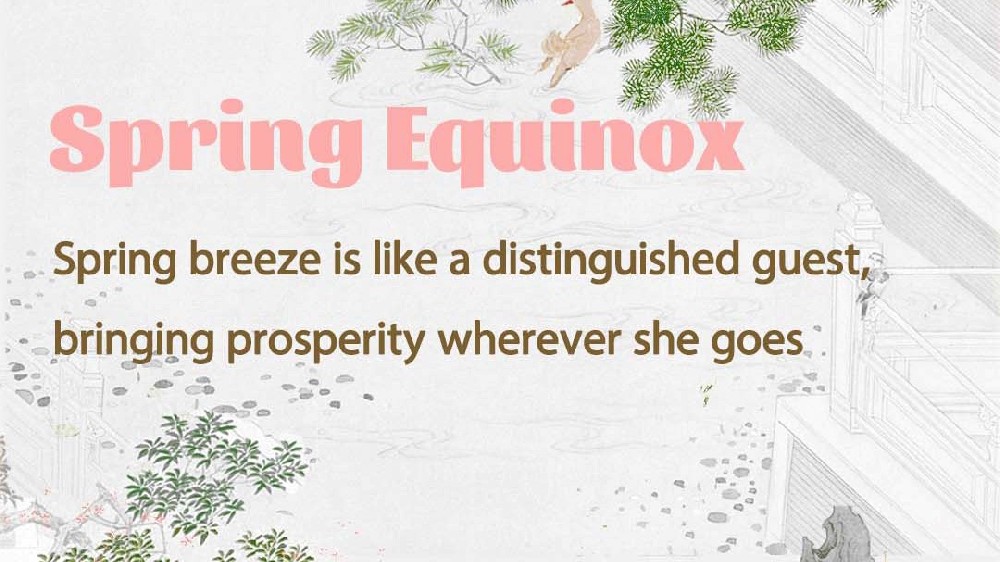A vision that is out of this world

Liu Cixin returns an autographed book to a fan at the 81st World Science Fiction Convention, a five-day event that closed in Chengdu, Sichuan province, on Sunday. [Photo/Xinhua]
Liu Cixin, author of The Three-Body Problem trilogy, recently said at the 81st World Science Fiction Convention, or Worldcon, in Chengdu, Sichuan province, that the golden age for China's sci-fi is yet to arrive, but it will come along with the advancement of time. China Daily interviewed the Hugo-award winner before the Worldcon, at the Another Planet Science Fiction Convention in Shanghai in late September. Here is what Liu says about the development of Chinese sci-fi and his writing since 2015, when he won the top award for a sci-fi novel.
Over the past eight years, what has been the development status and trends of Chinese sci-fi literature since you won the Hugo Award?
The most significant change is that sci-fi literature in China is no longer a marginal existence. It has gained attention from the general public and the media. It has come into the spotlight from a niche presence, which is its most significant change.
However, science fiction still needs further development. For example, the reader base, the quantity of influential authors and works are all lacking. So, it still has a significant potential for growth.
How will Chinese sci-fi develop further?
Sci-fi is driven by the broader societal context. Our society must maintain rapid development and technological progress. Rapid progress of society and technology will create an environment filled with a sense of the future, making the future highly appealing. Fundamentally, the development of sci-fi depends on that of the era.
Today, many technologies are advancing rapidly. Is this era making it more difficult or easier for sci-fi writers to create?
More difficult. Sci-fi is built upon a sense of wonder and estrangement from science. Now, science and technology have gradually penetrated our lives and are changing our reality. As a result, sci-fi has lost some of its original sense of wonder, making it a significant challenge for writers. Of course, sci-fi writers are trying to attract readers not by relying on the wonder of science, but by exploring different literary techniques and tapping into the potential to reflect reality. However, to be honest, the results of these efforts have not been too ideal.
Have you recently read any works, sci-fi or regular literature, that excited you?
To be honest, no.
What are your thoughts on the World Science Fiction Convention held in China?
It's an important event for Chinese science fiction. Its presence in China means that Chinese sci-fi has gained global attention. This event can promote the communication between Chinese and global sci-fi authors and readers.
It also allows many foreign authors, critics, and common sci-fi fans who may know little about China to experience the environment in which Chinese sci-fi has developed and gain a deeper understanding of it.
In our previous interview, you mentioned that you run 10,000 meters a day and swim several times a week. You also mentioned that your goal was to personally visit space when space travel becomes more affordable. Are you still adhering to this routine?
I am still maintaining my exercise routine, but the prospects of space travel have become more complex.
In the past, if you were an ordinary person going into space, you would have had some fun. But now, if I were to be one of the first people to go into space, it would become news. I don't want to be in the spotlight. Recent projects like Virgin's spaceflight program claim to take people into space, but you only get about 40 seconds to feel weightless, and it costs $200,000. Yeah, I still have the chance to go, but no, I don't want to become news.
I continue to exercise regularly, but it has mostly become a habit. Just as it's not easy to maintain an exercise routine, it's equally challenging to stop.

A sci-fi fan from Xi'an, Shaanxi province, showcases a book autographed by Liu at the Worldcon on Sunday. [Photo/Xinhua]
You've mentioned that a good sci-fi work should make people look up at the stars for a while on their way home from work. Why is looking up at the stars important for humanity and for individuals?
Because the environment in which we live is very limited, while the universe is vast. If we only focus on the narrow surroundings of our daily lives and remain indifferent to the vast existence beyond us, including time and space outside our world, there's something lacking in our lives. From a broader perspective, a culture that is (only) inward-looking is not conducive to the advancement of civilization. Sci-fi has been striving to break free from this situation.
What are the problems with inward exploration?
Both inward and outward exploration are forms of scientific exploration, and they are not contradictory. In fact, they are interdependent. For example, large-scale space exploration and space travel rely on the development of information technology, especially in the realm of virtual reality and artificial intelligence, which we often perceive as inward exploration. However, we should not allow inward exploration to completely occupy our lives and create a comfortable environment, and in the process, lose the pioneering spirit that is essential for human survival.
What is your daily writing schedule like?
Most of my previous works were written during my limited spare time. Particularly, when writing long pieces, time is tight, and it's impossible to have a specific routine. It's not a matter of choosing to write in the morning or the afternoon. You have to make the most of your available time.
When it comes to habits, it's not so much a habit as a necessity, especially when writing long novels. You need to plan the work as thoroughly as possible in your mind, including the details. Then, if you have time, you need to concentrate and get the writing done. You can't always write casually or when you feel like it, as some professional writers might do.
Since becoming famous, what has been the most significant impact on your life?
Actually, there hasn't been a significant impact. As you mentioned, I don't engage in many social activities, and I have limited public appearances each year. Additionally, I don't live in a big city, and the people around me aren't particularly interested in science fiction, so the impact has been relatively minimal.
What do you believe is the biggest challenge currently faced by Chinese science fiction?
Our biggest challenge is the lack of influential works.
Do you think your own works lack influence as well?
The Three-Body Problem is an exception, and it has indeed had a significant impact. However, it is an exception. The film adaptation of The Wandering Earth was very successful, but it was a film, not a novel, and you can't attribute it to sci-fi literature, can you? It belongs to the domain of film creation. Can you name any other works besides these?
Why do you think sci-fi literature doesn't have such a great influence?
Multiple factors have contributed to this decline. In general, written literature, including not only sci-fi but other literary genres, faces challenges due to the rise of alternative media and changing preferences.
Related articles
-
 Author of many talents plots next chapter of life
Author of many talents plots next chapter of lifeMore
-
 Book review: The Life and Times of Hu Wenzhong at Beijing Foreign Studies University
Book review: The Life and Times of Hu Wenzhong at Beijing Foreign Studies UniversityMore
-
 The master of translation
The master of translationMore
-
 Ancient wisdom shines in a new series of books
Ancient wisdom shines in a new series of booksMore
-
 Book restorers keep ancient treasures alive
Book restorers keep ancient treasures aliveMore
-
 Lu Xun——the leading figure of modern Chinese literature|Dr.egg
Lu Xun——the leading figure of modern Chinese literature|Dr.eggMore
